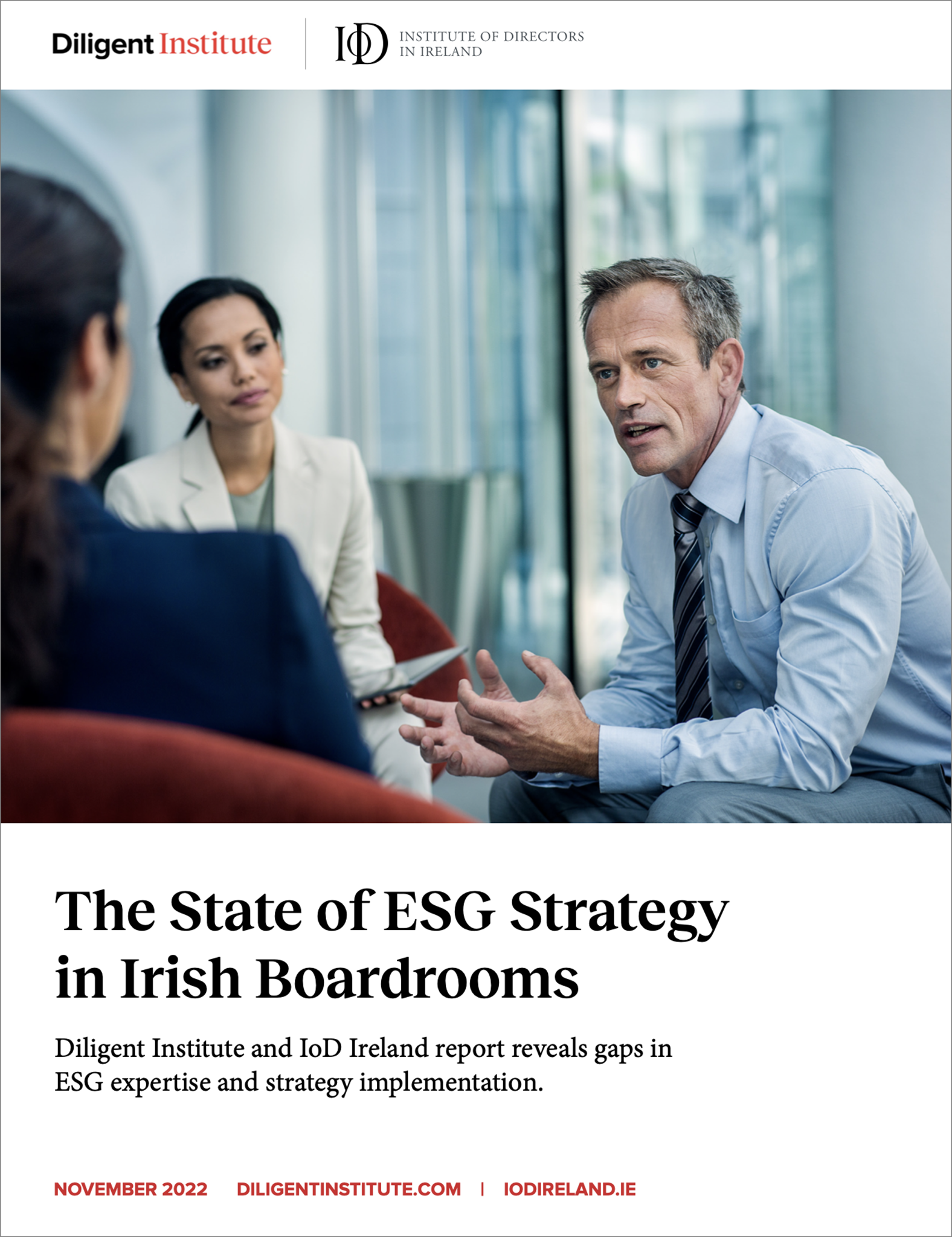The State of ESG Strategy in Irish Boardrooms
Diligent Institute and the Institute of Directors in Ireland surveyed 300 board members on their company’s ESG strategy and oversight structures.
Key findings
What does ESG oversight look like in Irish boardrooms?
58%
of directors indicate that the full board oversees ESG.
34%
have completed ESG training in the last 12 months
75%
believe all directors should be able to oversee ESG
17%
incorporate ESG metrics into executive compensation.
ESG
ESG strategy and oversight for Irish companies
This second annual report conducted by Diligent Institute and the Institute of Directors, Ireland (IoD Ireland) is based on a survey of nearly 300 directors in Ireland, the United Kingdom and the European Union.

Discussions about ESG issues on the rise in Irish boardrooms
23% of directors say ESG issues are discussed at every meeting.
Board members use education to get up-to-speed on ESG
While 34% of directors have undertaken ESG training in the last year, half our respondents (50%) say they will do so in the next 12 months.
Most directors report their organizations are implementing ESG KPIs
47% have already put ESG metrics in place, and another 37% are in the process of doing so.

Featured content
[rt_reading_time postfix=”minute read” postfix_singular=”minute read”]
Blogs
Trends in board ESG priorities: comparing the U.S. and Europe
Directors in the U.S. see ESG matters more as a risk to be mitigated, while European…
[rt_reading_time postfix=”minute read” postfix_singular=”minute read”]
Inform
Sustainability in the Spotlight: Has ESG Lost Momentum in the Boardroom?
Diligent Institute and Spencer Stuart surveyed nearly 1000 board members on their…
[rt_reading_time postfix=”minute read” postfix_singular=”minute read”]
Certifications
Climate Leadership Certification
Elevate your impact with the Diligent Institute Climate Leadership Certification to…
Contacting Diligent Institute
Want to learn more?
Subscribe to Diligent Institute to hear more about our research, education programs and events. Contact us to answer any questions you have!
